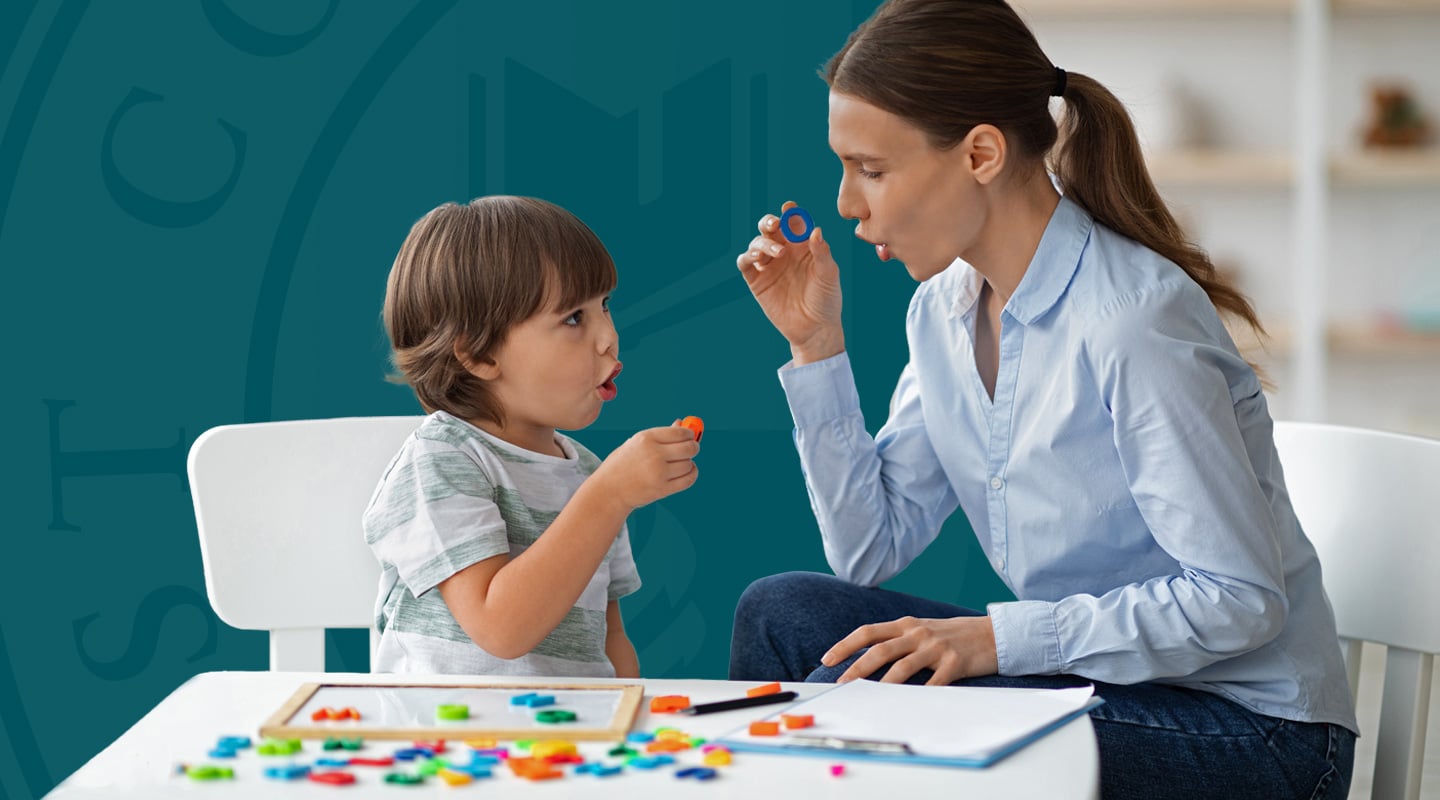Can a Speech Pathologist Help with Stuttering? Find Out What You Need to Know
Can a Speech Pathologist Help with Stuttering? Find Out What You Need to Know
Blog Article
How a Speech Pathologist Can Assist Improve Interaction Skills
Effective interaction is a cornerstone of specialist and personal success, yet numerous individuals deal with difficulties that prevent their ability to share themselves plainly. A speech pathologist is furnished to resolve these barriers through targeted assessment and intervention approaches tailored to each individual's needs.
Recognizing Interaction Disorders
Comprehending communication conditions is crucial for recognizing just how they impact people' ability to share themselves and involve with others. Interaction disorders encompass a vast array of difficulties that impact speech, language, and social interaction, frequently hindering reliable interaction. These conditions can develop from various factors, including neurological conditions, developmental hold-ups, physical impairments, or psychological issues.
Speech problems may show up as troubles in voice, fluency, or articulation manufacturing, influencing just how words are obvious or spoken. Language conditions, on the other hand, involve obstacles in understanding or using language, which can hinder both verbal and non-verbal communication. Social communication disorders are defined by problems in the practical facets of communication, such as taking kip down conversation or understanding social signs.
The effects of communication problems are extensive, influencing not only the person's ability to share thoughts and feelings yet also their social partnerships, academic possibilities, and total top quality of life. Recognition of these conditions can promote empathy and assistance, motivating effective strategies for interaction and engagement. Recognizing the complexities of interaction problems is a critical step towards advertising inclusivity and attending to the needs of those influenced.
Role of a Speech Pathologist
Speech pathologists often play a crucial function in diagnosing and dealing with communication problems, using a series of evidence-based strategies customized to each individual's requirements. These professionals collaborate with people across the lifespan, from youngsters with speech delays to adults recovering from strokes or traumatic brain injuries. Their knowledge incorporates a variety of communication problems, including articulation, language, fluency, and voice problems.
In restorative settings, speech pathologists use structured interventions designed to enhance communication skills. They might implement strategies such as speech workouts, language video games, and social interaction training to facilitate enhancements in receptive and expressive language abilities. Speech Pathologist. In addition, they inform customers and their households about effective interaction methods and adaptive approaches to navigate daily communications
Beyond straight therapy, speech pathologists team up with various other health care caretakers, experts, and instructors to guarantee an extensive method to therapy. They promote for clients by providing resources and assistance, enabling individuals to accomplish their communication objectives and improve their total high quality of life. As professionals in the field, speech pathologists are vital in fostering efficient communication, advertising independence, and improving social participation for those with communication obstacles.
Assessment and Diagnosis Process
The analysis and diagnosis process performed by speech pathologists normally entails a thorough evaluation to recognize communication disorders precisely. This procedure begins with a comprehensive situation history, where the clinician gathers important information about the individual's clinical, instructional, and developmental background. Recognizing the context of the person's interaction problems is necessary for an accurate diagnosis.
Following the medical history, speech pathologists use standardized examinations and informal assessments to review various facets of interaction, including speech sound production, language understanding, expressive language, and social communication skills. These analyses are customized to the Homepage individual's age and specific issues, supplying beneficial information for evaluation.
Monitoring is likewise a critical component of the assessment procedure, as it permits the clinician to see firsthand exactly how the individual communicates in all-natural settings. Additionally, meetings with member of the family and instructors can give understanding into the person's communication challenges across different settings.
As soon as the evaluation is complete, the speech pathologist synthesizes the findings to determine a medical diagnosis and recommend appropriate interventions. This detailed analysis procedure ensures that individuals obtain targeted assistance customized to their special communication demands, laying the foundation for efficient therapeutic approaches.
Therapeutic Methods and Techniques
Numerous therapeutic methods and methods are used by speech pathologists to address a range of interaction conditions efficiently. One commonly made use of technique is expression treatment, which concentrates on remedying speech seems via repetition and visual signs. This technique is particularly useful for individuals with speech audio disorders.
An additional efficient strategy is language treatment, which enhances both expressive and receptive language abilities. This may entail interactive tasks that promote vocabulary development, sentence framework understanding, and conversational abilities. In addition, speech pathologists commonly utilize social skills training to improve pragmatic language capacities, allowing people to navigate social communications a lot more successfully.
Fluency shaping and stuttering alteration strategies are specifically created to help those experiencing fluency conditions. These methods assist clients create smoother speech patterns and manage the emotional and physical parts of stuttering.
Furthermore, alternate and augmentative interaction (AAC) systems are utilized for individuals why not check here with extreme interaction disabilities. These systems, which can consist of gestures, symbols, or digital devices, supply vital support for efficient communication.
Advantages of Speech Treatment

In addition, speech treatment can help in creating crucial listening and understanding abilities, fostering much better interaction in conversations. Individuals with cognitive-communication disorders can additionally benefit, as therapy concentrates on enhancing memory and analytic abilities, necessary for reliable communication.
An additional critical aspect is the psychological support offered throughout treatment sessions. Speech pathologists develop a secure environment, motivating clients to get rid of anxiety and irritation associated to their interaction issues. This support can lead to improved self-esteem and total mental well-being.
In addition, early intervention via speech treatment can stop more complications, making sure that people reach their complete communicative capacity. On the whole, the benefits of speech treatment expand beyond simple speech improvement, favorably affecting numerous dimensions of life for those influenced by interaction problems.
Conclusion
In summary, speech pathologists play a vital role in dealing with communication disorders via evaluation, medical diagnosis, and tailored restorative interventions. By utilizing evidence-based techniques, Discover More these specialists boost people' speech and language abilities, fostering improved quality, fluency, and social interaction skills. The advantages of very early intervention emphasize the importance of seeking assistance from speech pathologists, as their competence can significantly enhance communicative capacity, inevitably causing higher success in both personal and professional rounds.

Speech pathologists frequently play a crucial duty in identifying and dealing with interaction problems, using a range of evidence-based techniques tailored to each individual's needs. As experts in the area, speech pathologists are necessary in promoting effective interaction, advertising freedom, and boosting social involvement for those with interaction obstacles.

Report this page